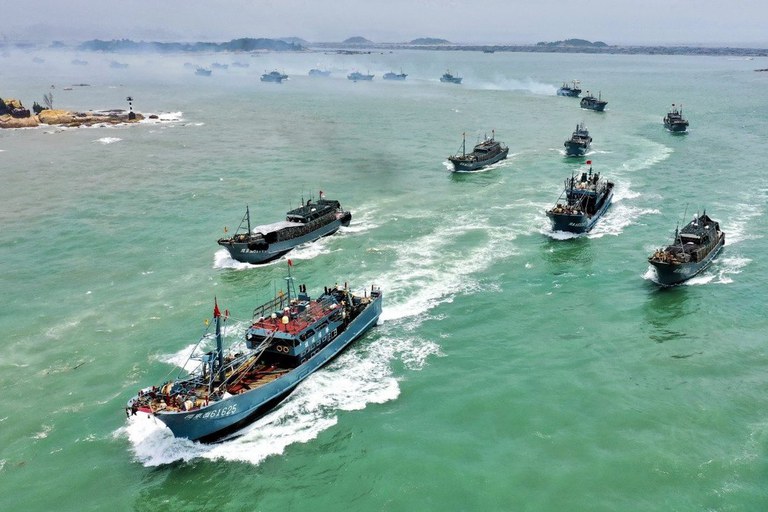Distant Water Fleets

Drivers and Impacts of Distant Water Fleets on National Fisheries and Fisherfolk in Priority USAID Geographies: A research agenda to support responsive action
USAID's Research Agenda on Distant Water Fishing Fleets (DWF Research Agenda) aims to provide relevant and robust information about the impacts of foreign fleets on national resources to support decision-making by USAID Missions with investments or equities in the sustainable management of wild-capture marine fisheries. It prioritizes information, by Mission, around 11 research questions under four research areas.
Why a research agenda?
USAID recognizes the sustainable management of coastal, marine, and freshwater resources as an important development issue. The Agency has decades of experience promoting coastal and fisheries management for improved food security, livelihoods, and biodiversity conservation. Within this context, industrial distant water fleets (DWFs) have typically been identified in USAID programs as one of many indirect threats to fisheries sustainability that can be addressed through improved fisheries governance. Recently however, USAID Missions have started to identify DWFs as a more direct and significant impediment to improving the management of national fisheries, and they are beginning to consider targeted interventions to counter the impacts of DWFs on national fishery resources.
Given the global dimension of DWFs and changing perceptions about their influence on USAID’s fisheries programs, the USAID Community of Practice for Marine Conservation and Sustainable Fisheries is taking a fresh look at responsive programming options for USAID Missions and the analyses needed to inform potential programming decisions. The DWF Research Agenda aims to catalyze research that will provide timely and relevant evidence to USAID staff engaged in designing and implementing fishery management programs. The resulting research will also be of interest to government, civil society, and private sector partners in the countries where we work.
How was the research agenda developed?
USAID’s DWF Research Agenda was developed through key informant interviews, surveys, and webinars with expert staff from USAID Missions and other U.S. Government Agencies through a process that:
- Broadly explored the impacts of DWFs on national fisheries and fisherfolk;
- Identified potential responsive actions that might be implemented from a development perspective; and
- Prioritized the information required to inform effective programmatic design and implementation.
How will the research agenda be implemented?
USAID will implement the research agenda through coordination with other partners and ongoing research initiatives, as well as strategic investments in key studies as resources allow. We are currently initiating work on several priority questions and will post updates on implementation here on the website. If your organization would like to contribute toward the implementation of this research agenda, please contact us for more information.

